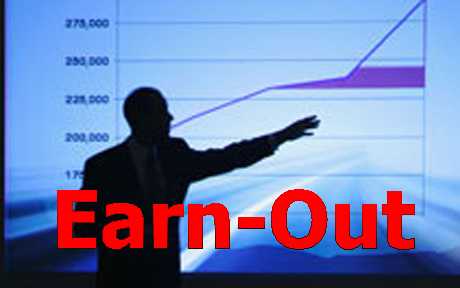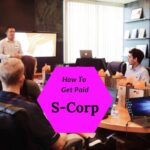I mentor many business buyers and sellers at SCORE and the SBDC. When the discussion comes around to financing options, few have ever considered the role of an earn-out. An earn-out can benefit both the buyer and the seller when used properly.
An earn-out is where some of the buyer’s payment is tied to the future performance of the business.
Buyer
Earn-outs are most commonly used when it is less clear whether or not the seller is truly representing the value of the company’s future earning potential or if the buyer needs the seller’s help to make sure that the business ownership transition occurs smoothly. Often an earn-out also includes a consulting agreement with the seller after the sale.
In an earn-out, the buyer’s down payment covers at a minimum the purchase of all the business assets. Then, a schedule is defined that plots various earnings and correlates them to future payments to the seller.
Let’s say the buyer agrees to pay the seller $350k for their business and the valuation is based on being able to exceed one million dollars in revenue each year.
If the buyer is skeptical about the seller’s projection of a million dollars in revenue the buyer may tie a portion of the sale price to the buyer’s ability to reach the one million in sales. The buyer would then allocate a portion of the sale price to an earn-out.
To be more specific, the buyer might agree to pay the seller at closing $100k to cover the purchase of the business assets and further agree that if the business exceeds the projected one million dollars in sales for the next two years, the buyer will pay the seller an additional $125k in each of the next two years, adding up to the remaining $250k.
However, if the business does between $999k and $900k (less than the target revenue), the buyer might agree to pay only $75k instead of the $125k in the initial agreement. If the business does less than $800k, the buyer might not make any payment that year at all. Likewise, in an earn out, if the projected target was set at one million dollars and the business did $1.5 million a year, there might be an upside built in for the seller and they may receive perhaps $200k rather than the $125k originally agreed to for each of those years.
Here is a Sample Letter of Intent with
Seller
On the other side if a seller determines early on that a buyer does not have sufficient access to capital or really needs the seller’s knowledge to take the business to the next level, the seller may play with their revenue projections and request that the buyer include an earn-out component as part of the sales price.
Moreover, when a large portion of the sale price will be subject to the seller’s marginal income tax rate an earn-out will allow the seller to get paid over multiple years and thereby have a lower marginal income tax rate allowing the seller to keep more of the profits from the business sale from the taxman.
When I sold my first business to a public company during the dot com era, I discovered early on, based on our initial meeting, that they wanted to include an earn-out component in the final deal. At that point, I revised my revenue projections downward. After the sale, I was kept on to help them achieve the numbers that I projected. In the end, we crushed the earn-out numbers and walked away with almost one million dollars more from the sale.
Earn-Out Conclusion
In the end, an earn-out for a buyer is an effective way to hedge their bets if they are not sure how the business will perform after the sale or if you think the seller is overselling his business. Also if the buyer has less money
For the seller, an earn-out is a good way to spread out the sale price over several tax years to reduce their overall taxes paid. Additionally, an earn-out can allow the seller to take a second bite at the apple and get hired on and earn a salary while they help the new business owner exceed projected sales volumes that return a greater sale price to the seller by exceeding projections
Have you ever considered an earn-out when buying someone else’s business or when selling yours?
Related Advice Navigator: ADVICE ABOUT SELLING A BUSINESS
Related Advice Navigator: ADVICE ABOUT BUYING AN EXISTING BUSINESS












